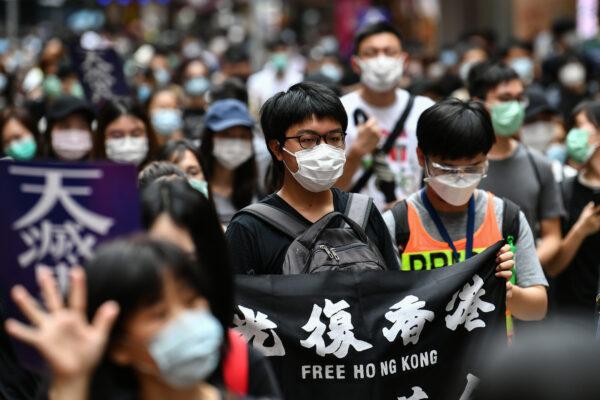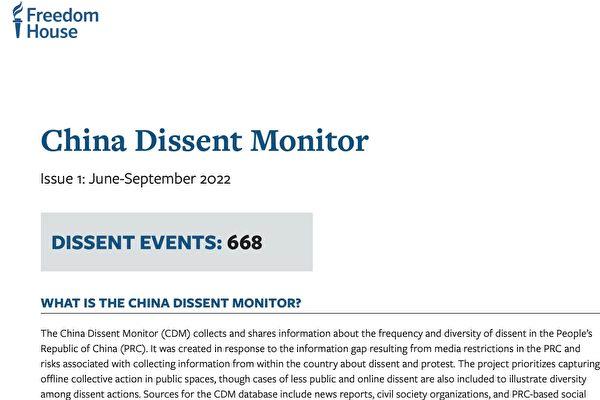In China, protests are happening every day, “in the streets, in their communities, on banners, on walls, in cyberspace, collectively, and individually,” despite years of censorship and social maintenance by the regime, reported the U.S.-based human rights organization, Freedom House.
Many Forms of Dissent
CDM data demonstrated the diversity of the Chinese demonstrations.It is clear that mainlanders seek a variety of methods to challenge those in power—both state and non-state—for their own rights and interests, from small acts of individual resistance to various modes of collective action, both online and offline.
A minimum of 8,775 people participated in those four months in the 636 offline dissent events listed in the CDM data.
Among all documented cases, 214 (32 percent) involved delayed housing projects, 110 (17 percent) involved pay and benefits, and 106 (16 percent) involved fraud.
While stalled housing projects and labor grievances motivated half of the 668 total events, the data included a range of other issues that drive dissent in China, such as fraud, land rights, zero-COVID, and state violence.

Many Forms of Repression
The CDM data suggests that repression is common.Faith groups, in particular, currently only constitute 2 percent of all dissent events recorded in the CDM database, but they suffer 6 percent of repression.
“This in part reflects the severity of controls over the activities of faith groups,” said the report.
The types of repression documented include torture, execution, fines, movement limitation, interrogation, expulsion, monitoring, arrest, detention, obstruction, among others.
He wrote, “This is why ‘social stability’ is ingrained in all levels of governance and ability to enforce it is among the top metrics considered for party cadre promotion.”
Slaten stressed that the regime’s goal is to “reduce the ability of citizens to mobilize.”
The report states that most statistics outlined in the report are “likely a drastic underrepresentation of dissent,” due to media restrictions under the dictatorship and risks associated with collecting information from within the country about dissent and protest.
The CDM project is a new Freedom House initiative prioritizing capturing offline collective action in public spaces, with sources from news reports, civil society organizations, and the Beijing-based social media platforms.




